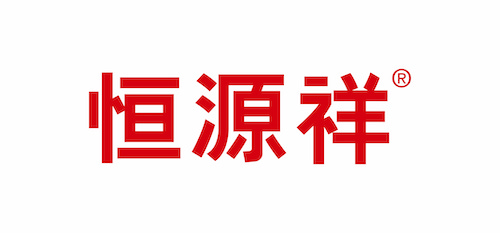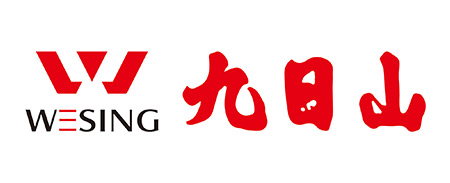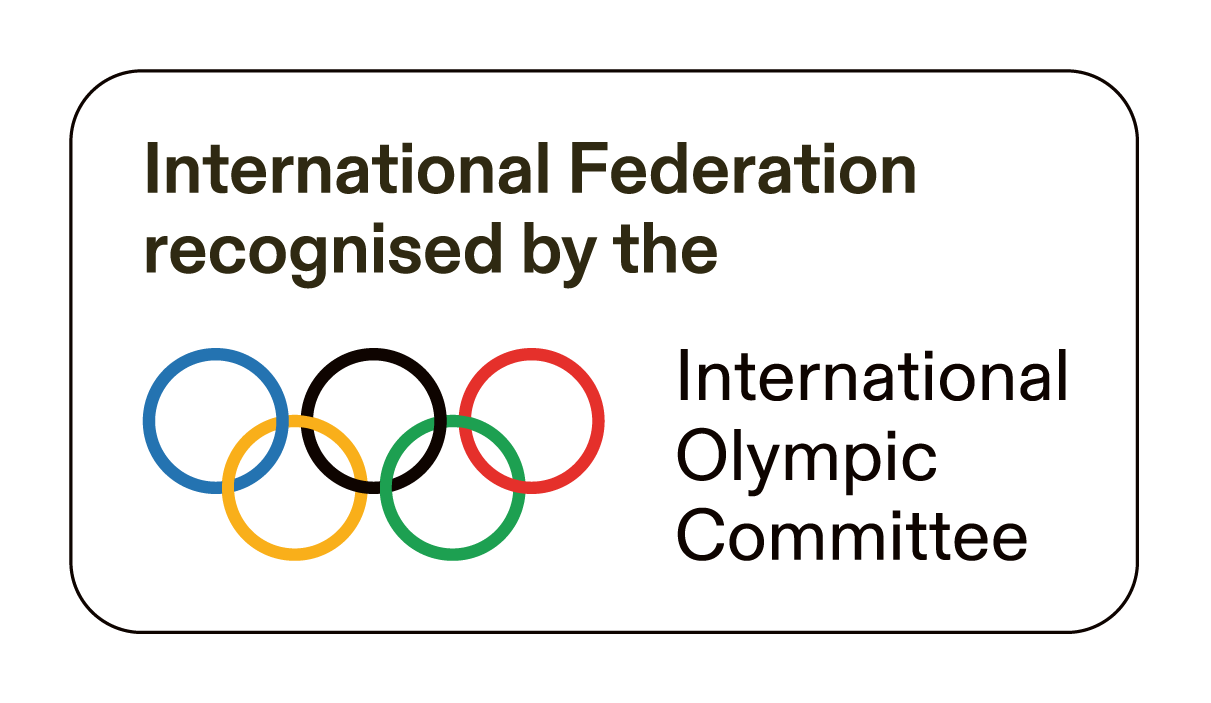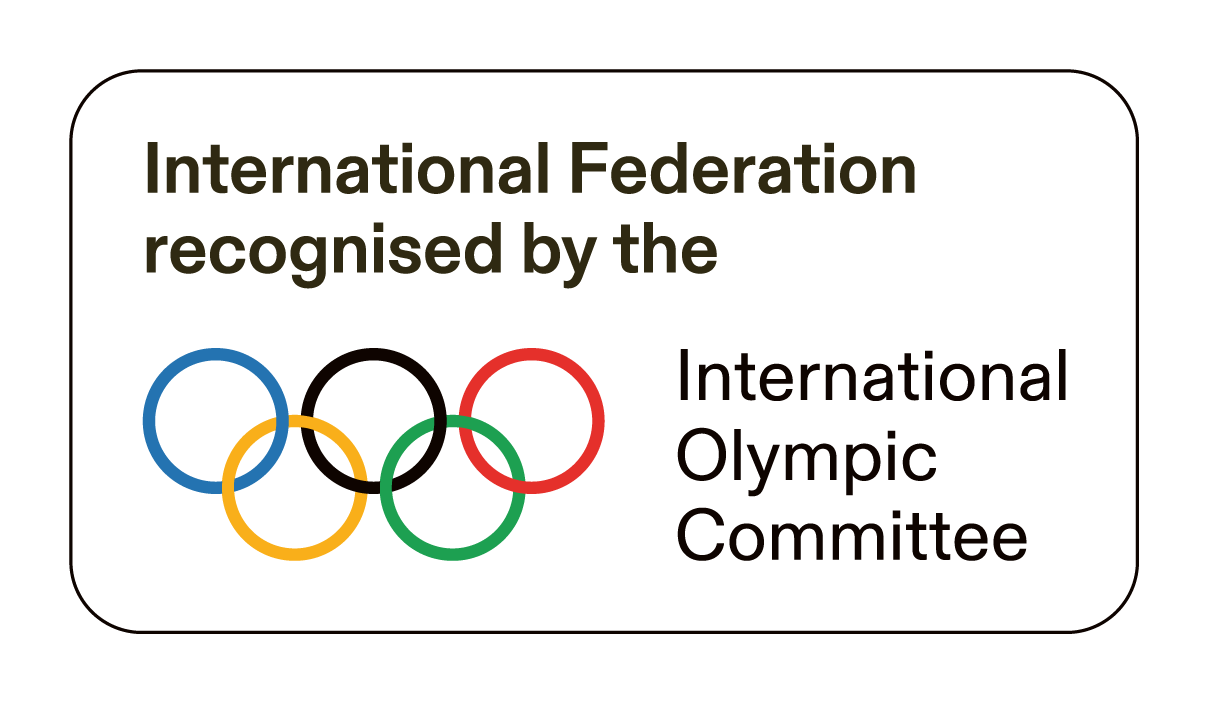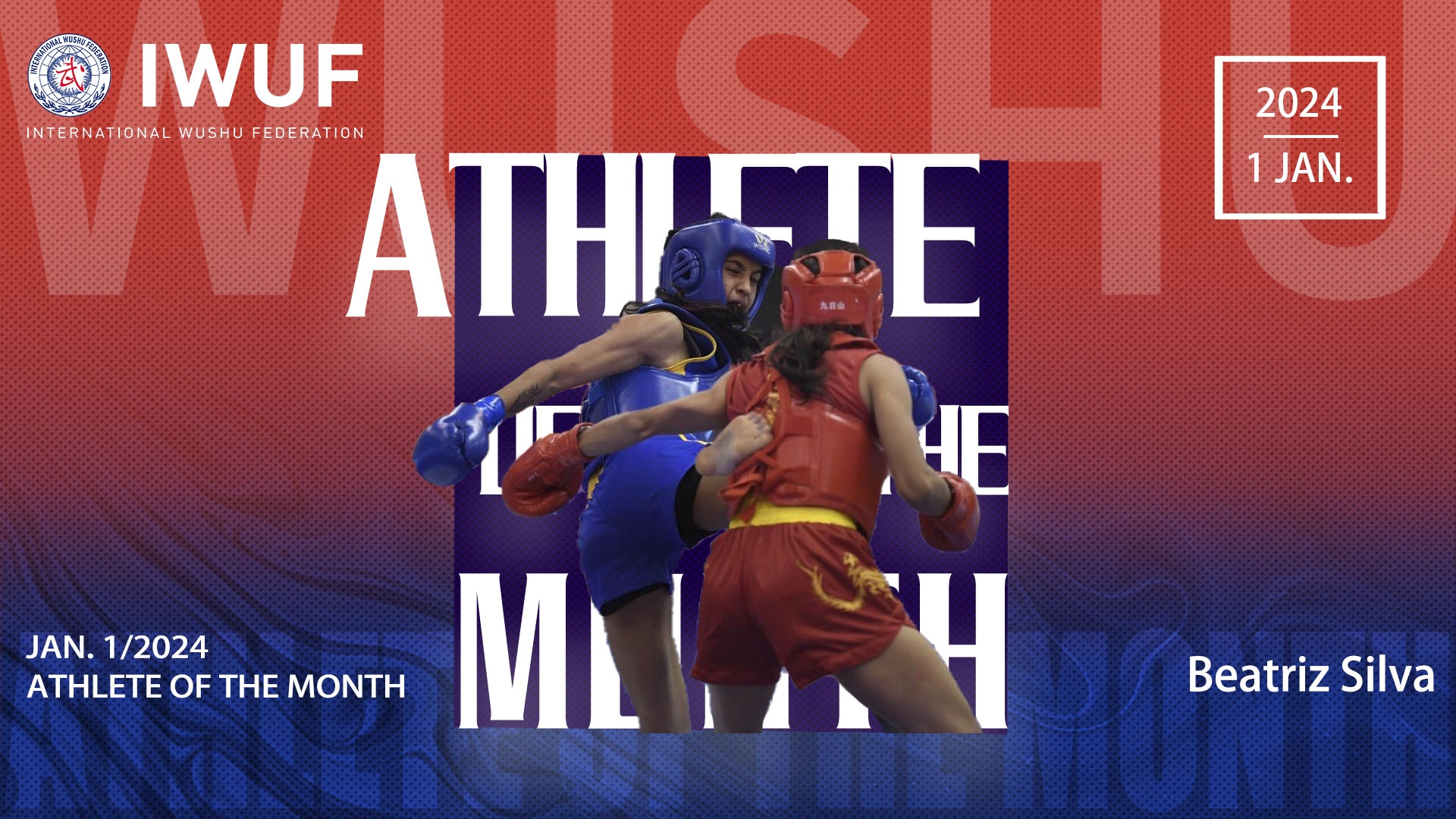
Brazil’s top sanda champion Beatriz Adriao Rustice Silva won the silver medal in the women’s 56Kg sanda category at the 16th World Wushu Championships in 2023. As Brazil’s 9-time consecutive national sanda champion in her weight class, Beatriz has also won two gold medals at the 2018 and 2022 Pan-American Wushu Championships, and a gold medal in the 2017 South American Wushu Championships in Uruguay. She is proud of being a second-generation champion sanda fighter, and works hard to keep the legacy of Brazilian sanda alive and growing, promoting the art in Brazil, especially to the next upcoming generation. With the 17th World Wushu Championships coming to Brazil in 2025, Beatriz has her eyes on the prize of making some sanda history with winning a gold medal for her country, and hearing her national anthem play on home soil.
Wushu Inspirations
Beatriz, 23, hails from Porto Ferreira, in the state of São Paulo in Brazil. “I’ve been practicing wushu my whole life,” she tells us. “My father was already a wushu athlete when I was born in 2000, so sanda was always there in my childhood. But it was at 13 years old that I decided to dedicate myself to become an athlete. I now fight sanda at 56kg.”
Beatriz describes her childhood as being organically surrounded by wushu. “It was mostly my father,” she notes, who practiced wushu the most, “but my whole family actually — my sisters, my brother, my mom — everyone practiced wushu for fun or for competition at some point. I like to say that wushu is my family business.”

Beatriz says her father, Antonio Silva, was the biggest inspiration for her to get started. She adds, “And still to this day he is my number one partner on this journey in sport. He was an amazing fighter who fought for Brazil at three editions of the World Wushu Championships (2005/2007/2009), so he had a brilliant sanda career. Now he’s the coach for the Brazilian team. I can say that I’m very privileged to have him as my father and coach.” Because of sanda’s popularity in Brazil, Beatriz also had some female role models in her chosen sport. “When I started,” she says, “I had some girls from Brazil to look up to, girls who were doing an amazing job at sanda, winning medals at the Worlds and everything. So as a young athlete it was important to have examples like that, and the women in sanda here in Brazil keep growing and getting better.”
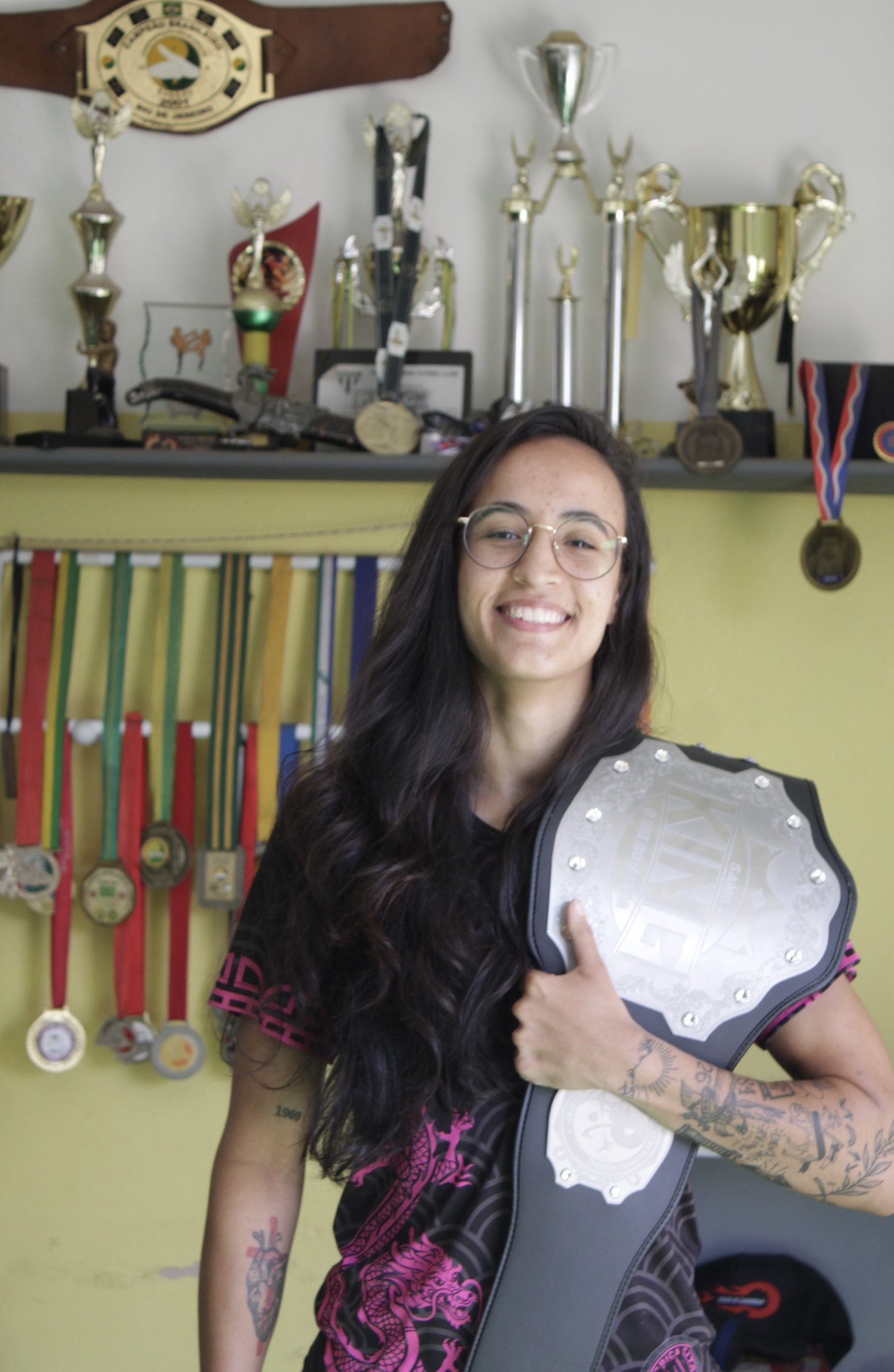
Small Town, Big Wushu Dreams
Beatriz basically grew up in her father’s wushu gym, absorbing the sport from a young and tender age. “Sanda is a very traditional fighting style here in my town,” she explains, “because of the work my dad has been doing for 30 years now by teaching wushu for the community. It’s a small town and a lot of people have been at our gym throughout the years. I was fourteen when I had my first fight, and I got a win. In that same year I became a national champion in my category. For me it was always about hard work — being talented or not it doesn’t matter, I had to work hard to get to every single one of my goals. I had a great team, a great family support and good examples — and the love for this game is what made me get there.” Beatriz is now the undefeated 9-time National Champion in her weight class in Brazil. She also became the South American Champion in 2017, and the Pan American Champion in 2018 and 2022.
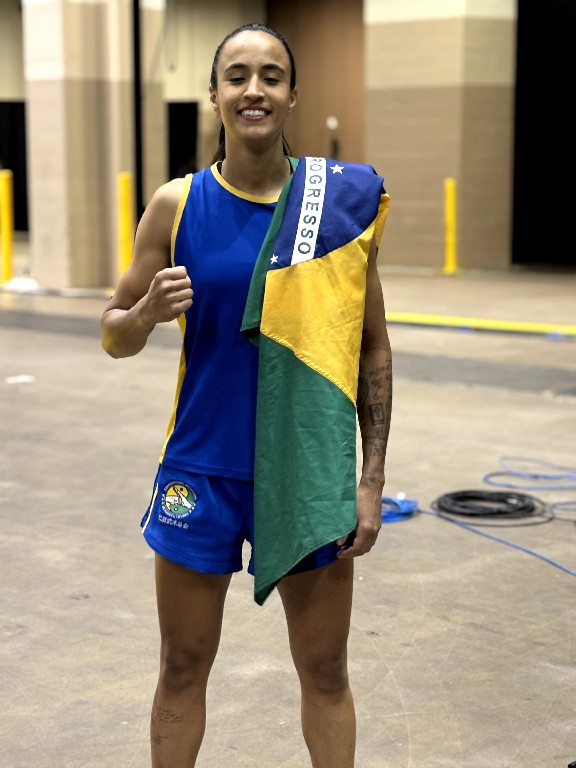
Fighting on the International Stage
Beatriz’ first international tournament was the Pan American Championships in 2016, in Lubbock, Texas. She recalls, “I fought the hometown athlete Audrey Meeks and ended up losing after three good rounds. We were 16 years old, in the juniors category, and that was my first loss. It was not cool for me losing at the time — being so young sometimes we don’t really know how to deal with failure; but I can see now being more mature that the loss made me grow as a fighter, and also as a person, and it wasn’t the end of the world to lose a fight!” Indeed, the loss only made Beatriz train harder and she became more determined. “I came back to fight the Pan American Championships in 2018 in Argentina,” she says, “and the 2022 Championships in Brazil in the adult category, and won both of them.”

For Beatriz, to fight at the World Wushu Championships was a childhood dream. “I saw my father doing it,” she says, “and watched some friends doing it before I got to the required age, so it was definitely a dream coming true to represent my country. Unfortunately I couldn’t go to any World Junior Championships,” she says regretfully. “I was part of the team in 2016 but couldn’t go to Bulgaria due to financial difficulties, and 2018 in Brazil I was about to turn 18 years old and wasn’t a junior anymore. So to be part of the team for Shanghai was amazing. I worked hard and proved myself year after year so no one could say that I was there for being the coach’s daughter. I left no doubt that it was my time to fight.”
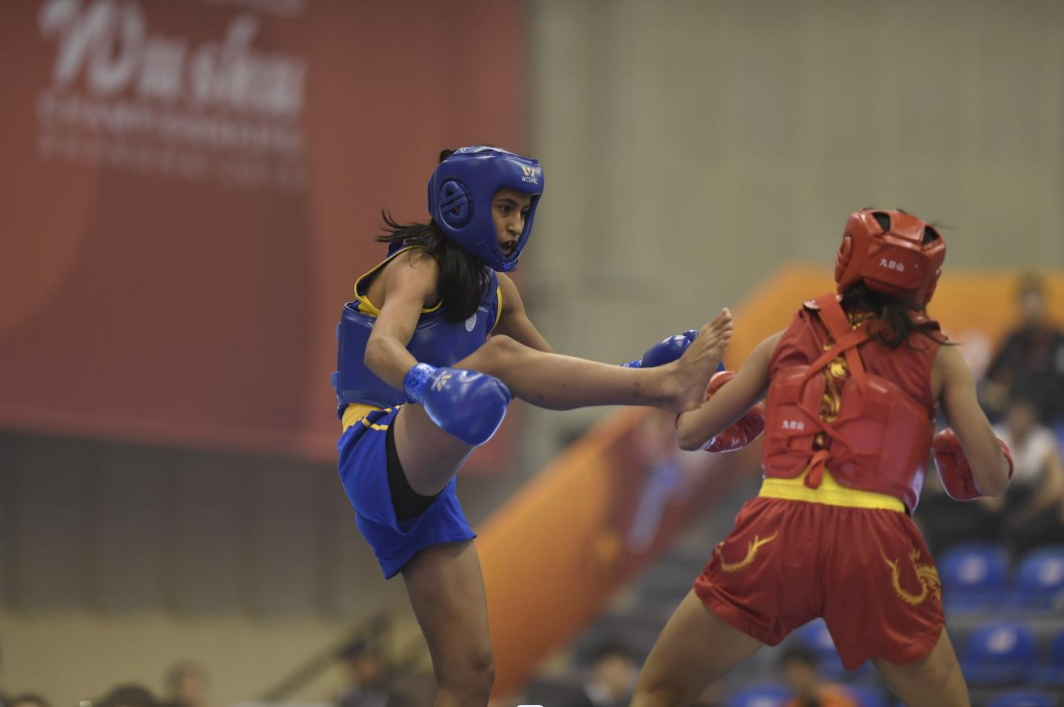
Beatriz recalls that her Shanghai experience was amazing. “I got there,” she says, “in my best shape till that point and gave everything I had. We did expect to come home with a medal, that was the plan — and I had a good first fight against Nepal, a good win, but then I committed some mistakes in the quarterfinals against Tunisia that cost me that podium. That tournament made me see that I wanted this more than I thought, and also that I needed more training and more experience. So I had a great time in Shanghai with my friends for a couple days and then came back home already thinking about the next World Championships.”

A World Championships Silver Medal in Fort Worth
The Covid pandemic put a crimp in the plans of Beatriz and all athletes around the world. But finally, after a two-year hiatus, she packed her bags and her equipment and headed to the 16th World Wushu Championships in Texas. “Fort Worth was intense,” Beatriz remembers. “Me and every other athlete was anticipating this event for a long time since Covid. And just to finally be there to celebrate our sport was emotional after the years of difficulty that the world went through. Since Shanghai we knew very clearly what we wanted and we worked so hard to get there. This whole preparation was about believing that we could be one of the best, and that we deserved to be respected as a strong sanda team too.”
 Beatriz would fight all the way to the finals, losing the gold to her opponent from China, but standing proudly on the silver podium with her flag rising. She reflects on her preparation, “It was a very resilient cycle that ended up with us being happy and proud but not fully satisfied. To fight sanda against China it’s obviously hard — they are the best — but we’re going to make adjustments, we’re going to keep training and what I think is the most important, is that we believe that it is possible and we are not afraid.”
Beatriz would fight all the way to the finals, losing the gold to her opponent from China, but standing proudly on the silver podium with her flag rising. She reflects on her preparation, “It was a very resilient cycle that ended up with us being happy and proud but not fully satisfied. To fight sanda against China it’s obviously hard — they are the best — but we’re going to make adjustments, we’re going to keep training and what I think is the most important, is that we believe that it is possible and we are not afraid.”
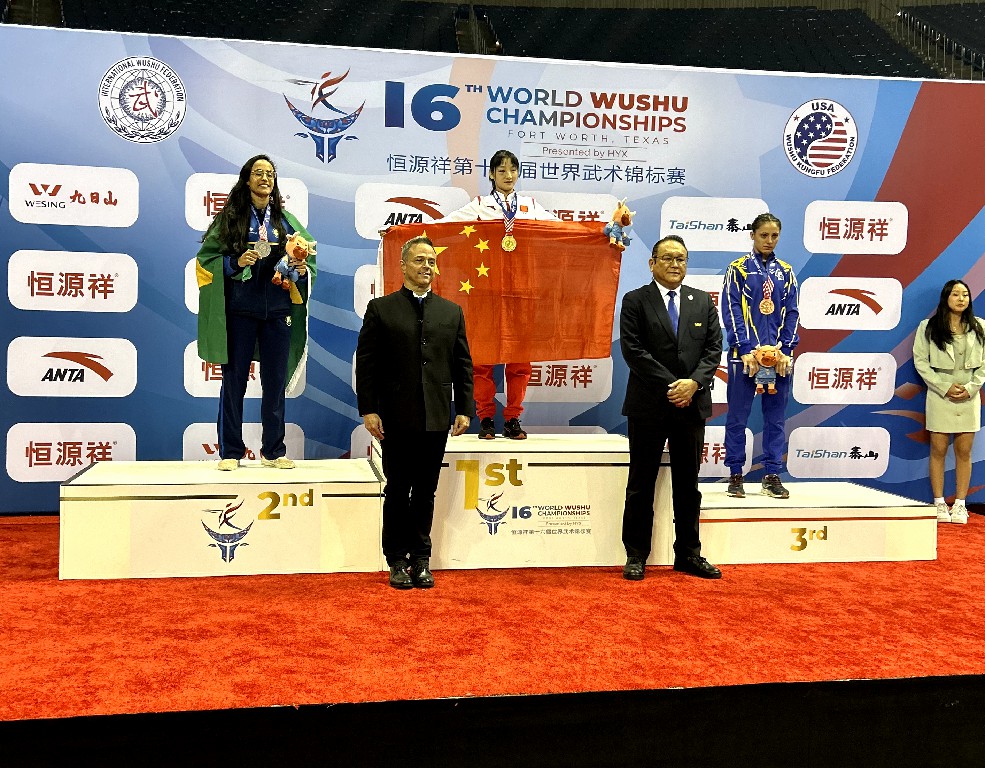
Beatriz is also appreciative of the experience she shares with her team at events like a World Championships, and exclaims, “It’s just so fun! Our ‘A Team,’ the ones who go to the Worlds, we’re very close, really good friends so we always have a great time being together. Some are like really brothers and sisters for me, people that I grew up with, that I look up to. We definitely share a special bond and it’s a blessing to have real friendship within the sport.”

Bonds of friendship, mutual respect and camaraderie beyond the borders of Brazil are also deeply valued by Beatriz, and she remarks, “I definitely like to win and want a gold medal, but for me personally I think people are the most important thing in this world. I like a good fight but also like to be friendly and kind to everyone around. It’s always so good to meet the friends we made at the tournaments year after year. I had some t-shirts of my sanda team that I gave my opponents and some old friends in Fort Worth and it was nice. My Chinese opponent gifted me back with her competition uniform, and these are the things we will remember and feel good about when we’re old.”

Beatriz adds, “Being in this sport has given me so much. I traveled the whole world, met a lot of people, and experienced many different situations and emotions that made me who I am today. Victory, defeat, relationships with people, bad moments, good moments, overcoming obstacles, it’s all part of life. The most rewarding thing for me is that I lived through it all and can’t wait to see what’s next.”
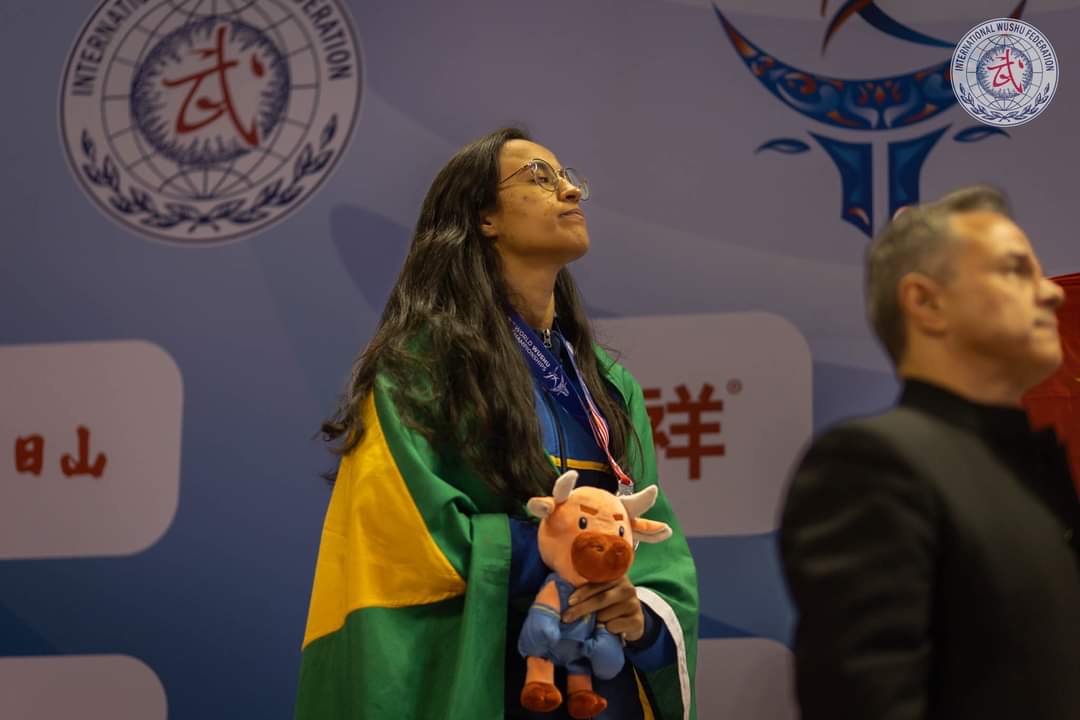
Balancing Work, Sanda Training
We asked Beatriz what her training is like, and her biggest challenges as an athlete. She replies, “I work and study, so I need to balance my training with that. My normal routine would be two training sessions per day Monday to Friday, one training session on Saturdays and rest on Sundays. The biggest challenge is for sure the financial support. We don’t get to train like real professional athletes because we need to work. Even traveling to competitions it’s hard, it’s hard to raise the money to do it and it’s hard to leave our full-time jobs to be at the tournaments or training camps with the team. It’s an amateur sport with no government funding, so this is probably the hardest part of it. We do it because we love it.”
Beatriz reflects on her sanda training experiences and coaching. “My coach is my father,” she says again, “who has literally given me everything. But I also had the opportunity to be at the Beijing Sports University for about 5 months in 2018 and trained with Chinese coach Li Jie. He has helped me a lot and that time there was game changing for me. I’ve recently started to coach new young athletes, and honestly coaching — it’s just as cool and hard as fighting myself. I’m very proud of my team’s progress and looking to improve in this area too.”
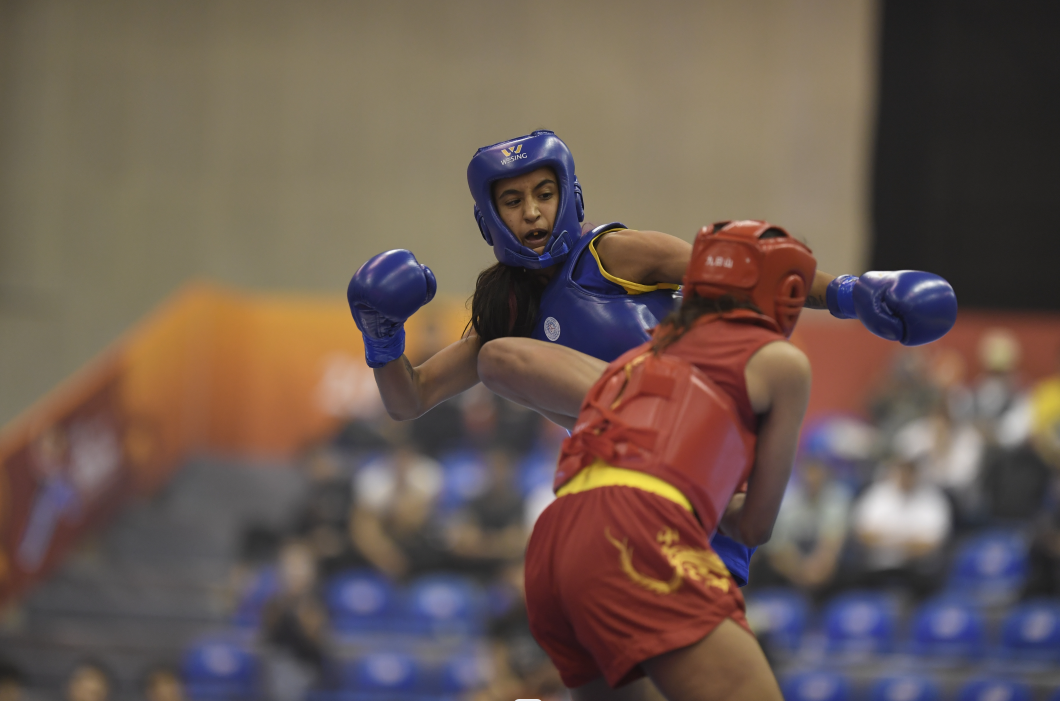
“Let me tell you,” Beatriz emphasizes, “We are getting good here in Pan America, really. At this last World Championships we had medals for Brazil, USA, Mexico, Argentina, all of this with no financial support. Now imagine what we can do with some help. We can be among the best teams.”
“I now work full time with sanda. I teach classes for kids and adults who want to practice wushu for health, for fun or for competition. In school I’m studying Modern Languages — I know that’s nothing to do with sports but I really wanted to go for something different and that I liked. My number one hobby has to be music. I’m a music nerd. I like to listen to albums and watch live performances. I know all about the artists and the songs that I like. I also play guitar.”

Wushu Goals, Wushu Life
Besides having a champion sanda coach for a dad, who bolsters her journey every step of the way, Beatriz is also appreciative of the rest of her family supporting her sport career. She says, “My brother and sisters are always watching my fights and cheering me on so hard, I love them so much. But I’ve got to give a special shout out to my mom, because I live with her and she’s the one who gets to hear all the complaining about being tired and hungry. She cooks my food and helps me to do everything I have to do. I always say that she and my father are the only ones fighting harder than me for this dream. So thanks guys I love you!”
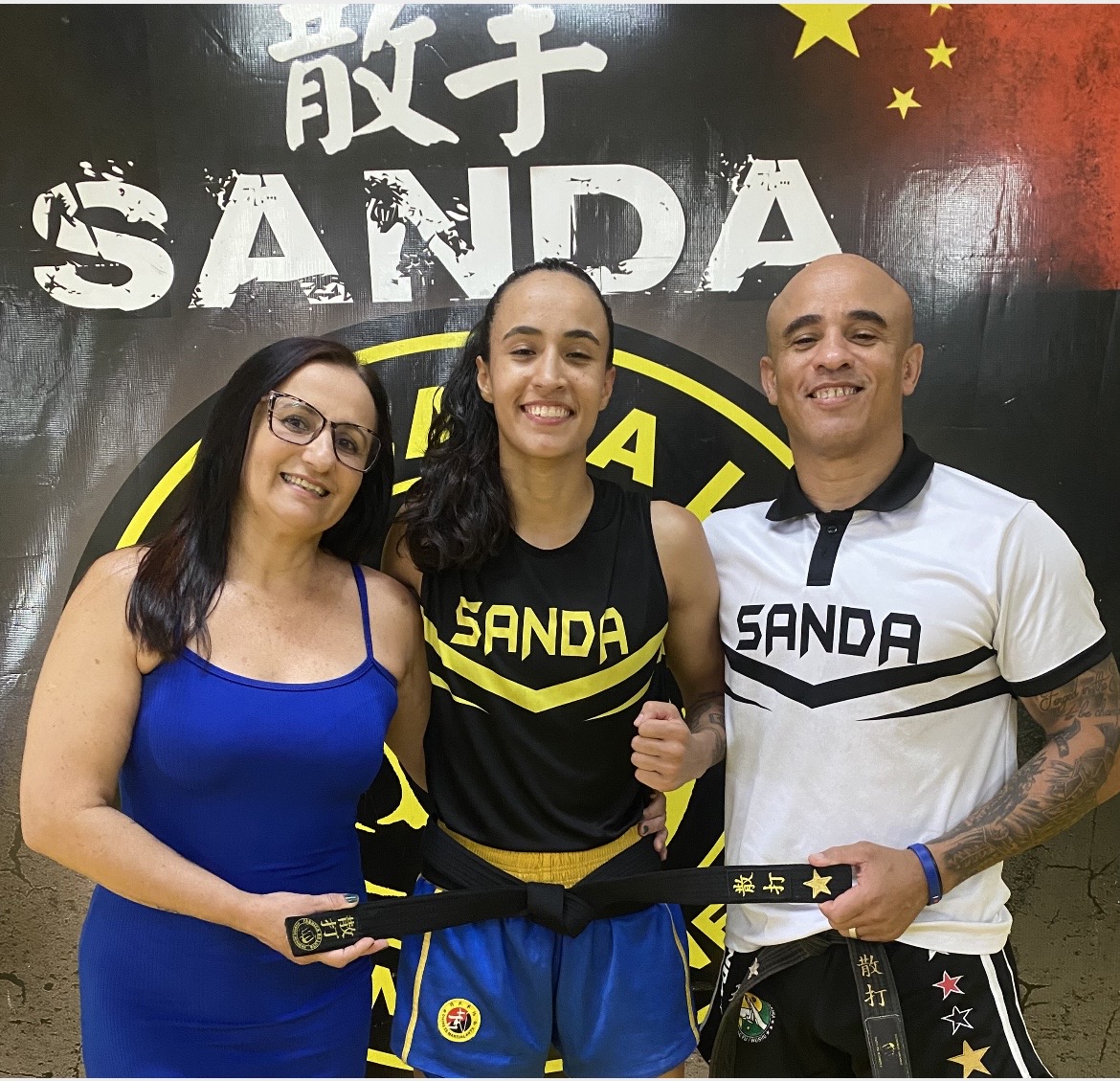
“My goal,” Beatriz says, “it’s definitely a gold medal at the World’s. Like I said before, we believe we can do this and we are not afraid of anyone, so we will see what happens.” Brazil will host the next 17th World Wushu Championships in 2025, a prospect that fills Beatriz with great passion and intense purpose. “’I’m very excited!” she exclaims, “I mean, to fight a World Championships at home, it’s a once in a lifetime opportunity. I want to be there for sure, fighting for Brazil and celebrating the beautiful country and people that we are. Thank you for the opportunity to tell my story. We all love wushu and I hope some of my words help inspire someone out there.”
 Concluding her thoughts, Beatriz says, “Wushu has changed my family history, it gave us the roof over our heads and the food on the table. My father raised us all with this sport. That’s the big win at the end of the day. So there’s no separation between me and wushu. I will eventually stop competing because no one can do this forever, and then probably coach, probably take care of our gym and help with the development of this sport as a way to give back the blessings it provided me.”
Concluding her thoughts, Beatriz says, “Wushu has changed my family history, it gave us the roof over our heads and the food on the table. My father raised us all with this sport. That’s the big win at the end of the day. So there’s no separation between me and wushu. I will eventually stop competing because no one can do this forever, and then probably coach, probably take care of our gym and help with the development of this sport as a way to give back the blessings it provided me.”









